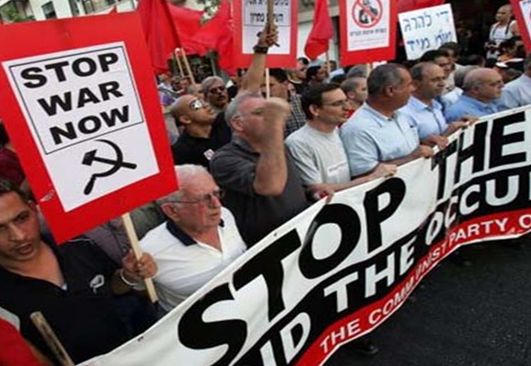
Three years after murderous Operation Cast Lead against Palestinians in the Gaza Strip, the Israeli military’s argument against independent investigation of its conduct during the operation has proven to be hollow. According to B’Tselem, The Israeli Information Center for Human Rights in the Occupied Territories, the military has completely failed to investigate itself, regarding both policy choices and the conduct of the forces in the field in particular cases.
From 27 December 2008 to 18 January 2009, the Israeli military carried out an offensive dubbed Operation Cast Lead in the Gaza Strip. The resulting damage to the civilian population in Gaza was colossal: Israeli security forces killed 1,391 Palestinians, at least 759 of whom (including 318 minors under age 18) were civilians who had not been taking part in the hostilities. More than 5,300 Palestinians were injured, at least 350 of them seriously. The operation also caused extensive damage to homes, industrial plants and the agricultural sector, in addition to the electricity, sanitation, water, and health infrastructure that had already been on the brink of collapse due to Israel’s siege on Gaza. According to UN estimates, the military destroyed more than 3,500 homes, leaving some 20,000 persons homeless.

“Stop the war”, a Communist Party of Israel demonstration in Tel-Aviv during (Photo: Al Ittihad)
After the operation ended, B’Tselem and other human rights organizations wrote to the attorney general, demanding that he establish an independent body for investigating the military’s actions during the operation. The attorney general rejected the demand, stating that the military had acted in accordance with international humanitarian law. In addition, he stated that military units were holding operational inquiries into incidents in which civilians had been harmed, and that the findings would be forwarded to the military advocate general and to the attorney general for a decision whether to pursuer further action in each case. The attorney general added that organizations holding concrete information on incidents in which civilians had been harmed could send the details to the relevant officials, who would examine their claims.
It was not until 1 January 2012, almost three years after the end of the operation, that the Israeli army (Tzahal) sent B’Tselem an update regarding hundreds of complaints that that organization had submitted over the past decade and more, including those relating to Operation Cast Lead. The responses regarding the latter follow: In nine cases, the army did not order an investigation. Regarding five of them, the response repeated the update sent more than two years ago, after B’Tselem’s initial complaint: “The file has been sent to the relevant military officials for response”. The cases are: 1) the killing of five members of the Abu ‘Easheh family, 2) the killing of five members of the ‘Aleiwa family, 3) the killing of 11 members of the Dib family, 4) the killing of Ibrahim and Muhammad Abu Dakah and Ibrahim Abu Tir, and 5) the killing of five members of the Ermelat family. “The file is being handled” was the response regarding two other cases: 1) the killing of five sisters from the Bau’lusha family, and 2) the killing of the baby Wiam al-Kafarneh. In the two remaining cases, “the request was not located”: 1) the killing of eight persons in the bombing of a truck carrying oxygen tanks, and 2) the killing of three children of the al-Astal family. did not respond at all regarding another case that B’Tselem had submitted, and the decision regarding it is unknown: the killing of ‘Atiyyah a-Samuni and his four-year-old son.
Of the 11 cases in which an army investigation was opened: In four cases, the file was closed with no legal proceedings against the persons involved. The cases were: 1) the use of Shafiq Daher as a human shield, 2) the killing of the eight members of the Abu Halimah family, 3) the killing of Rawheyeh a-Najar, and 4) the killing of six members of the ‘Abd a-Dayem family. In five cases, the investigation was completed, but the Corps had not yet decided whether to file an indictment or close the file. The cases: 1) the use of Sami Muhammad and Ra’d Abu Seif as human shields, 2) the killing of 21 members of the Samuni family, 3) the killing of a father and two of his sons from the ‘Azzam family, 4) the killing of Mustafa Barakeh and Rasmi Abu Jarir, and 5) the killing of four members of the Haji and ‘Arafat families. Three of these cases have awaited a decision for more than a year and a half, as the MPIU informed B’Tselem in July 2010 that they had been forwarded to the MAG Corps. Regarding the killing of 21 members of the Samuni family, the media reported that the army had questioned Col. Ilan Malka, the Givati Brigade commander at the time of the operation, on suspicion of negligence for having ordered the bombing of the house in which the army had gathered about 100 members of the family. This is one of the few instances in which a senior commander was questioned regarding Operation Cast Lead, to the best of B’Tselem’s knowledge. A recent media report stated that the file against Malka was likely to be closed, and that his promotion would not be further delayed.
There has never been a serious investigation into the suspicions raised by B’Tselem and additional Israeli, Palestinian and international organizations regarding breaches of international humanitarian law by the military during the operation. Most of B’Tselem’s demands for investigation were not met. The investigations that were opened did not, to B’Tselem’s knowledge, address the responsibility of high-ranking commanders, but rather focused on the conduct of individual soldiers. According to B’Tselem “Israel’s choice to investigate only isolated incidents, and not the military’s conduct as a whole during the operation, gives cause for concern that persons responsible for extremely grave breaches of law have not been questioned. Among the issues that have not been investigated are the following: The policy that guided the forces during the offensive; the legality of the orders given to the soldiers; the choice of targets for bombing and the means taken to protect the civilian population. These questions lie at the very heart core of international humanitarian law. Their resolution is vital to examining the legality of the military’s conduct during Operation Cast Lead.”
Related:


